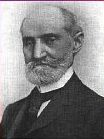Fever
Characteristic – Especially adapted to children and old people, diseases of first and second childhood (Barytac., Millefolium), persons with light hair, lax muscles, and want of bodily irritability.
Ailments: with insensibility and partial or complete paralysis that originate from fright, bad effects of fright, the fear still remaining (Aconite, Hyoscyamus), from charcoal vapors, from inhaling gas, of drunkards.
All complaints: with great sopor, painless, complains of nothing, wants nothing.
Spasms: of children, from approach of strangers, from nursing after fright of mother (Hyoscyamus-after anger of mother, Chamomilla, Nux), from crying, eyes half opened and upturned.
Screaming before or during a spasm (Apis, Helleborus).
Deep stertorous respiration on inhalation and exhalation.
Sleep: heavy, stupid, with stertorous breathing, red face, eyes half – closed, blood – shot, skin covered with hot sweat, after convulsions.
Sleepy, but cannot sleep (Belladonna, cham., Stramonium), sleeplessness with acuteness of hearing, clock striking and cock crowing at a great distance keep her awake.
Loss of breath on falling asleep (Grindelia, Lachesis).
Bed feels so hot she cannot lie on it (bed hard, Arnica, Bellis, Bryonia, Pyrogen), moves often in search of a cool place, must be uncovered.
Want of susceptibility to remedies, lack of vital reaction, the well chosen remedy makes no impression (Carbo vegetabilis, Laur., Val.).
Digestive organs inactive: peristaltic motion reversed or paralyzed, bowels seem closed.
Constipation: of children, of corpulent, good – natured women (Graphites), from inaction or paresis, no desire, from lead poisoning, stool hard, round, black balls (Chelidonium Lamb., Thuja), protrude and recede (Silicea, Thuja.).
Stool: involuntary, especially after fright (Gelsemium), black and offensive, from paralysis of sphincter.
Urine: retained with bladder full, retention, post – partum or excessive use of tobacco, in nursing children, after passion of nurse, in fever or acute illness, paralysis of bladder or sphincter. (In Stramonium we have suppression, while in Opium the secretion is not diminished, the bladder is full but fullness is unrecognized.)
“Opium renders the intestines so sluggish that the most active purgatives lose their power.” – Hering.
“Persistent diarrhea in those treated with large doses of the drug.” – Lippe.
Delirium: constantly talking, eyes wide open, face red, puffed, or unconscious, eyes glassy, half – closed, face pale, deep coma, preceded by stupor.
Thinks she is not at home, this is continually in her mind.
Picking of bed clothes during sleep (while awake, Belladonna, Hyoscyamus).
Sudden retrocession of acute exanthema results in paralysis of brain or convulsions (Zincum met.).
Marasmus, child with wrinkled skin, looks like a little dried up old man (Abrotanum).
Aggravation: Warmth, while perspiring, from stimulants, night and morning, during and after sleep (Apis).
Amelioration: From cold, motion, during day and evening.
Type: Congestive. Epileptiform. Regular paroxysms, irregular stages. Sleepy. Typhoid, typhus.
Time: 11 A.M. Afternoon, night, after midnight.
Chill: Without thirst. Shaking chill at 11 A.M., body cold, or coldness only of the limbs, abdomen, back, hands, and feet. Shaking chill, followed by heat, with deep soporous sleep, during which she sweats profusely. Chill with pains in limbs, hot head and deep sleep. Chilliness on going to bed, sleep, with profuse sweat about the head.
Heat: Over whole body, burning even when bathed in sweat, with red face. Soporous, snoring sleep, with open mouth, twitching of the limbs. Spasmodic contraction of the muscles of the face, sardonic smile, unconsciousness, and desire to uncover (must be uncovered, Apis, Pulsatilla ). Headache. great prostration and often fainting when waking from sleep.
Sweat: Over entire body, which is burning hot, deep sleep, with stertorous breathing and open mouth. Hot, profuse morning sweat, wants to be uncovered. Sweat on the upper part of the body, lower part and dry, heat and sweat intermingled. Cold sweat on forehead. Profuse sweat about the head. Worse during sweat ( Ipecac. better after sweat, Belladonna ).
Tongue: Coated dirty yellow, quivering. Loss of appetite, aversion to food. Longing for spirituous liquors.
Pulse: Full and hard, or weak, slow, scarcely perceptible.
Apyrexia: Symptoms of cerebral congestion, with profound stupor, complete indifference, the patient makes no audible complaint. Intermittents of old persons and children.
Analysis: Chill, with hot head and deep sleep, profuse sweat about the head, coldness of single parts.
Heat, deep, soporous sleep, desire to uncover.
Sweat: hot, profuse, aggravated during, profuse about head.

